第22章
The constant insistence that morality and justice are not law has tended to breed distrust and contempt of law as something to which morality and justice are not merely alien, but hostile.The new development of "naturrecht"may be pardoned infelicities of phrase, if it introduces us to new felicities of methods and ideals.Not for us the barren logomachy that dwells upon the contrasts between law and justice, and forgets their deeper harmonies.
For us rather the trumpet call of the French "code civil": 52 "Le juge, qui refusera de juger, sous prétexte du silence, de l'obscurité ou de l'insuffisance de la loi, pourra être pour.suivi comme coupable de déni de justice." 53 "It is the function of our courts," says an acute critic, "to keep the doctrines up to date with the mores by continual restatement and by giving them a continually new content.This is judicial legislation, and the judge legislates at his peril.Nevertheless, it is the necessity and duty of such legislation that gives to judicial office its highest honor; and no brave and honest judge shirks the duty or fears the peril." 54You may say that there is no assurance that judges will interpret the mores of their day more wisely and truly than other men.I am not disposed to deny this, but in my view it is quite beside the point.The point is rather that this power of interpretation must be lodged somewhere, and the custom of the constitution has lodged it in the judges.If they are to fulfill their function as judges, it could hardly be lodged elsewhere.Their conclusions must, indeed, be subject to constant testing and retesting, revision and readjustment; but if they act with conscience and intelligence, they Ought to attain in their conclusions a fair average of truth and wisdom.The recognition of this power and duty to shape the law in conformity with the customary morality is something far removed from the destruction of all rules and the substitution in every instance of the individual sense of justice, the arbitrium boni viri.55 That might result in a benevolent despotism if the judges were benevolent men.It would put an end to the reign of law.The method of sociology, even though applied with greater freedom than in the past, is heading us toward no such cataclysm.The form and structure of the organism are fixed.
The cells in which there is motion do not change the proportions of the mass.Insignificant is the power of innovation of any judge, when compared with the bulk and pressure of the rules that hedge him on every side.Innovate, however, to some extent, he must, for with new conditions there must be new rules.All that the method of sociology demands is that within this narrow range of choice he shall search for social justice.There were stages in the history of the law when a method less psychological was needed.